How to Study Math Effectively in College?
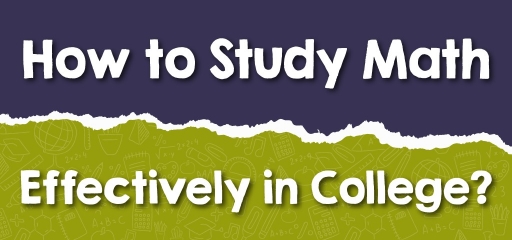
Mathematics is a critical subject while studying in college. So, everyone must give special attention to improving as well as developing practical skills in this subject. Today, in this article, we will show you how to study math effectively in college.
The Absolute Best Book to Ace the CLEP College Mathematics Test
Taking a Look at Your Textbook
Math books are written in a specific style that you must learn to read to get the most out of them. This style extends beyond the use of technical jargon to include the entire presentation as well as the foundation for the arguments themselves.
It is a mathematical argument or derivation where a series of stages in logic or mathematics is used to incontrovertibly proceed from a set of assumptions to a certain conclusion. The conclusion can be applied in any case in which the assumptions are valid after the derivation is complete. The argument may include an equation or a sequence of equations (on multiple lines).
Read the Passage Twice (at Least)
Never expect to be able to fully comprehend the information in your math textbook on the first try. Even the most accomplished professional mathematicians don’t merely read a text once and call it a day. You may need to go over the subject twice, three times, or even more times before you fully get it.
1. Read the Passage Once to Get the Essential Points
Besides attempting to comprehend every line of a multi-line derivation, look at the beginning and finish to discover what the derivation accomplished. Make sure to thoroughly examine the primary results and formulae to ensure that you comprehend what they are saying.
2. Reread the Passage a Second Time with the Goal of Comprehending It Completely
As you read, take a moment to pause at each technical phrase and memorize its meaning. Whenever you come across an equation, translate the symbols included inside it using the denotations of the symbols. What the equation states in symbols should be written out in English.
When you come across a multi-line derivation, try to figure out what steps were taken to go from one line to the next.
Fill in the blanks with any intermediate stages that appear to be missing. (Authors frequently conduct several stages at a time in derivations if they are working on a large project.)
The Absolute Best Book to Ace the CLEP College Algebra Test
A Remark on the Use of Highlighting
When it comes to math textbooks, underlining and highlighting appear to be of little benefit. In contrast to many other fields (particularly non-textbooks), math texts often make excellent use of page arrangement to draw attention to important issues.
Typical examples of this are theorems (important mathematical facts) and definitions, which are frequently separated from the body of the text and labeled Theorem or Definition.
Equations are frequently displayed with bright colors, and key formulae may be further identified by a box or a colored backdrop, making the use of highlighting superfluous.
It is almost unbelievable how many secondhand textbooks can be discovered in which each theorem and each formula, which has previously been marked by the author’s use of whitespace, has been highlighted again by some attentive student who has identified it as an essential topic worthy of recall. Highlighting can be detrimental to one’s success.
The use of underlining or bolding a passage or a formula may allow you to deceive yourself into believing that you genuinely recall and comprehend what you’ve read or heard.
The highlighted material may be passed over with a short acknowledgment that it is significant, but you may be unable to solidify your comprehension of the idea upon re-reading.
In general, there are more effective methods of assimilating the information included in a math book than highlighting.
Making Observational Notes
When it comes to taking notes, it is frequently the case that less is more. No matter how hard you try, it will be impossible to capture every word the instructor says or every word he puts on the board. You should avoid making this mistake by not trying.
The majority of class time should be spent on a discussion of ideas between the students and the teacher. If you are paying attention in class (this is referred to as “active listening”), you will not require transcription of everything that takes place. In part, this is because many of the ideas in your textbook have already been recorded in your textbook.
Because you have already paid for a costly printed copy of that content, there is no reason for you to spend further money on a hurriedly hand-written copy.
Reading through the material that will be covered in class before class can help you take better notes. Do not strive to memorize every detail; instead, concentrate on the assimilation of the essential principles and a cursory scan through the instances.
Make a note in the margins of everything you don’t understand. Bring your book to class, if at all feasible, and keep it open to the necessary page(s) during the lecture.
Even if you discover, for example, that the teacher is using the same example that is provided in the book, you will get little benefit from giving yourself two identical copies of the same item. Instead, make an effort to pay attention and listen.
A similar situation arises when the instructor is writing down a definition or theorem that is already in the book; there is no need for you to repeat the process. Instead, pay attention and make an effort to comprehend.
When students get disoriented during a presentation, we have frequently seen that they begin taking excessive notes.
According to their mindset, if they can’t comprehend the concepts, they should at the very least write them down and hope to gain knowledge later.
Unfortunately, the need to record every detail is in and of itself a hindrance to critical thinking and learning processes.
When you are unable to follow the lecture, it is far preferable to ask a question rather than to act as a scribe. If you have a question, someone else in the class may have the same issue as you do. If you speak up, you’ll be doing them as well as yourself a favor.
Interestingly, professors seldom express dissatisfaction with students who ask too many questions. Teachers are far more likely than students to voice their dissatisfaction with a lack of involvement in class.
We are not recommending that you not take any notes at all, by any means. Many students have discovered that the process of creating an outline helps them retain more of what they have learned in class.
Additionally, if the teacher is covering information that is not covered in the text or is taking a completely different approach to tackling the problem, you will want to keep a careful note of the discussion.
Pay attention to what the teacher says; part of the information he or she says should be noted down in your notes, even if it isn’t posted on the board.
It is recommended that class time be a balanced blend of listening, thinking, questioning, and taking notes. If you see that you are dedicating the majority of your class time to one activity while disregarding the others, we recommend that you make an effort to re-establish a sense of balance.
A Perfect Prep book to help you ACE the CLEP College Algebra Test
Homework
Your teacher will give homework tasks that must be handed in and graded regularly. Contrary to common assumption, the purpose of these assignments is not to specify what you should be doing; rather, they are intended to guide you through the process.
A typical homework assignment serves to offer the teacher an opportunity to evaluate your performance and provide you with feedback on your performance about the class standards.
Although teachers’ methods differ greatly from one another, instructors in courses with big sections (more than roughly twenty students) generally do not have the time to closely monitor your performance on every issue that they believe you should attempt.
On many occasions, teachers may propose extra tasks that will allow you to practice the whole spectrum of topics you need to learn. If you do not receive any such suggestions, you should presume that all of the issues in the parts assigned for reading are open to interpretation.
It is a good idea to write down your solutions to these challenges in a notebook. Practice writing them entirely from start to finish.
At the end of the day, you must practice on enough problems to feel confident in your knowledge of the content and prepared to do well in an examination. If you require further practice, other textbooks (available from the library) or study aids such as Schaum’s Outlines are excellent sources of additional problems.
The majority of professors are more than eager to answer any questions you may have concerning problems you attempt outside of the given ones (either in class or during office hours). If you inform your professors that you are attempting difficulties on your own, they will be more attentive and respectful of your efforts.
Many textbooks include working examples that are comparable to homework assignments. If you are unsure of where, to begin with, an issue, attempt to find a comparable example and use it as a reference to get started. You should be conscious of the fact that you are utilizing a crutch while doing this.
You have not truly mastered your assignment until you can do the problems on your own, without the assistance of the book.
Make certain that you understand the solutions in detail and that you can explain why you took the actions you did if asked. If you still don’t understand something, ask your instructor for clarification. As soon as you see a difficulty, get assistance as soon as possible.
Because math courses often build on one another, whatever you don’t comprehend today will almost certainly lead to greater difficulties tomorrow. Students frequently put off asking inquiries in the hopes that the challenge will “clear itself” on its own. This is a method that is seldom successful.
Best CLEP College Math Prep Resource
Getting Ready for Exams
Successfully preparing for math exams differs from successfully studying for other subjects in a few important ways. Mathematics tests often emphasize abilities and ideas, neither of which can be learned the night before a test in the subject area.
The single most crucial method of preparing for tests is to complete all of the homework tasks as soon as they are assigned.
Before the exam, go over all of your relevant assignments one more time, paying close attention to any areas where you struggled the last time.
Work on at least one issue of each category to ensure that you retain your memory of how to complete it. If you’re having difficulties, go back over the principles and work on more problems of that nature until they’re no longer difficult to solve.
A large number of textbooks provide supplemental problems at the end of each chapter. Make use of these problems to supplement your learning.
If your textbook has chapter summaries, make sure to read them. Check to see that you can retain each topic and write a line or two describing it when you’ve finished reading the material. If not, go back and study the information. Consider the scenario in which you are explaining.
Please take note of how much time and focus is given to various subjects. The majority of professors stress the same subject on tests that they did in class.
Any content that was not covered in the text should be thoroughly reviewed. Any instances that you don’t remember well should be reworked.
For those who are worried about taking examinations and are concerned that they may freeze up,’ the best defense is to prepare under situations that mimic as closely as possible to those of a real-world test setting. Select a series of problems from the text or from elsewhere, set a timer, close your book, and go to work on them.
The majority of undergraduate tests are timed, and most instructors plan their exams so that an average student will use the majority of the allocated time to complete the task at hand. This is an area in which you may give yourself an advantage by working through enough challenges so the solutions come fast and readily.
The time you spend attempting to recall how to solve an issue is time that you will not be able to spend writing your test. Additionally, the understanding that you can solve a large number of difficulties easily instills a sense of self-assurance in you.
The Best Books to Ace the CLEP College Test
Related to This Article
More math articles
- Number Properties Puzzle – Challenge 21
- What is a Perfect SAT Score?
- Top 10 Tips to Overcome ISEE Math Anxiety
- Using Vertical and Horizontal Number Lines to Represent Integers
- How to Mastering Sequence Word Problems: A Comprehensive Guide
- How to Calculate Cylinder Volume and Surface Area? (+FREE Worksheet!)
- 5 Best Praxis Core Math Study Guides
- Top 10 SHSAT Prep Books (Our 2023 Favorite Picks)
- How to Decipher Limits and Function Values
- ISEE Middle-Level Math Worksheets: FREE & Printable
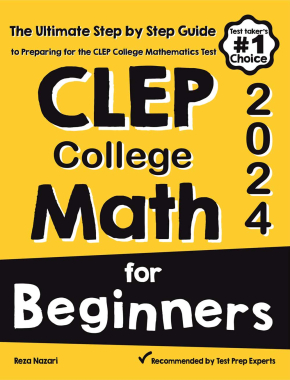
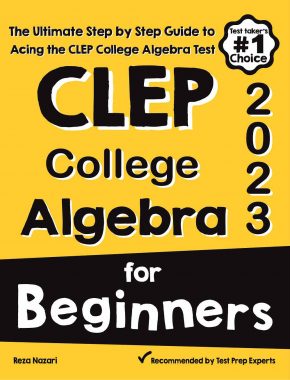
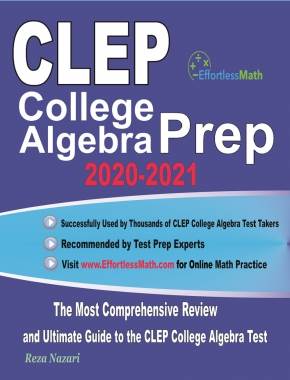
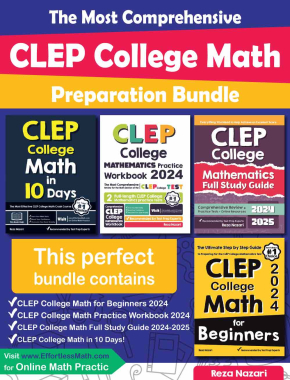
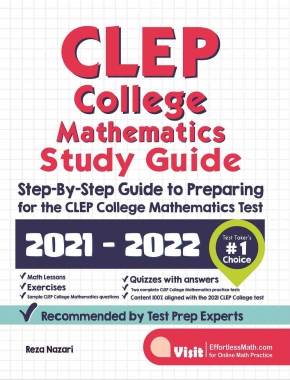
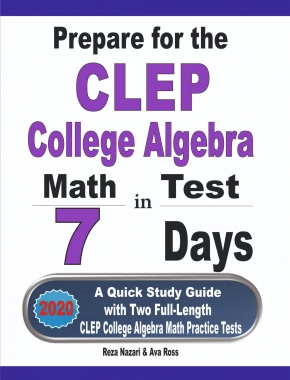
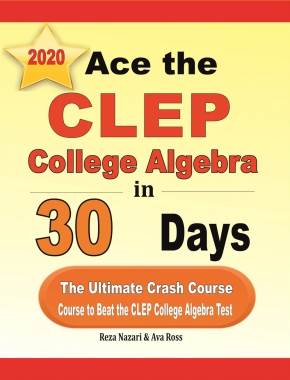
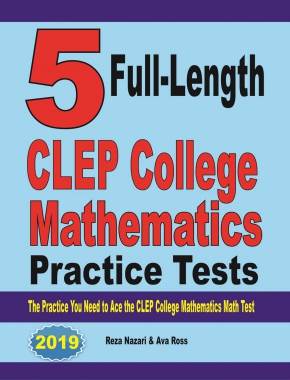
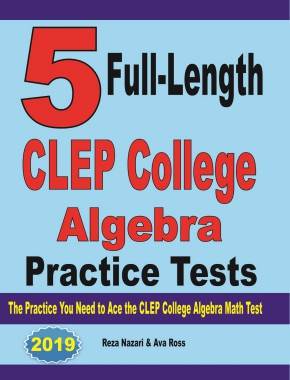
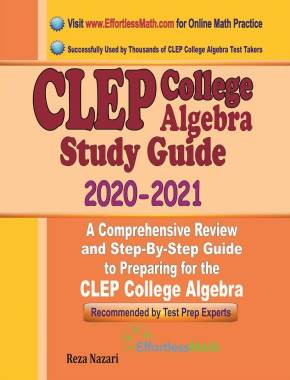
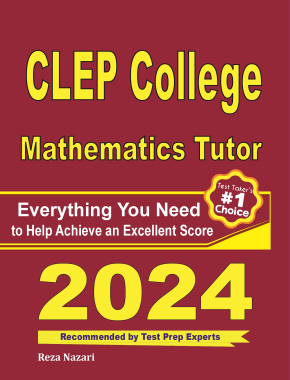
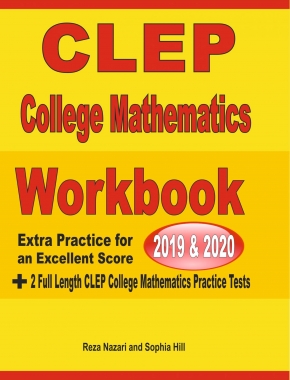
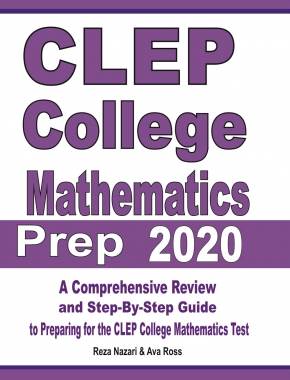


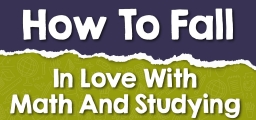
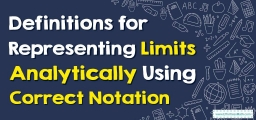
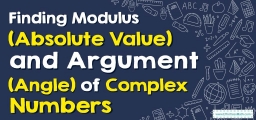
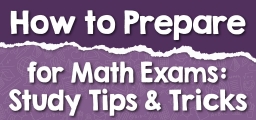

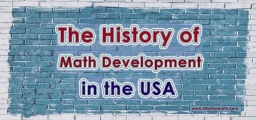

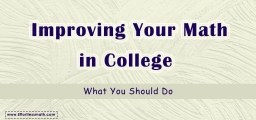
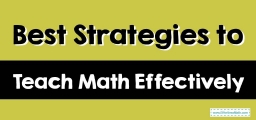
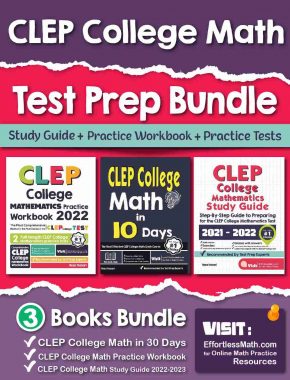
What people say about "How to Study Math Effectively in College? - Effortless Math: We Help Students Learn to LOVE Mathematics"?
No one replied yet.